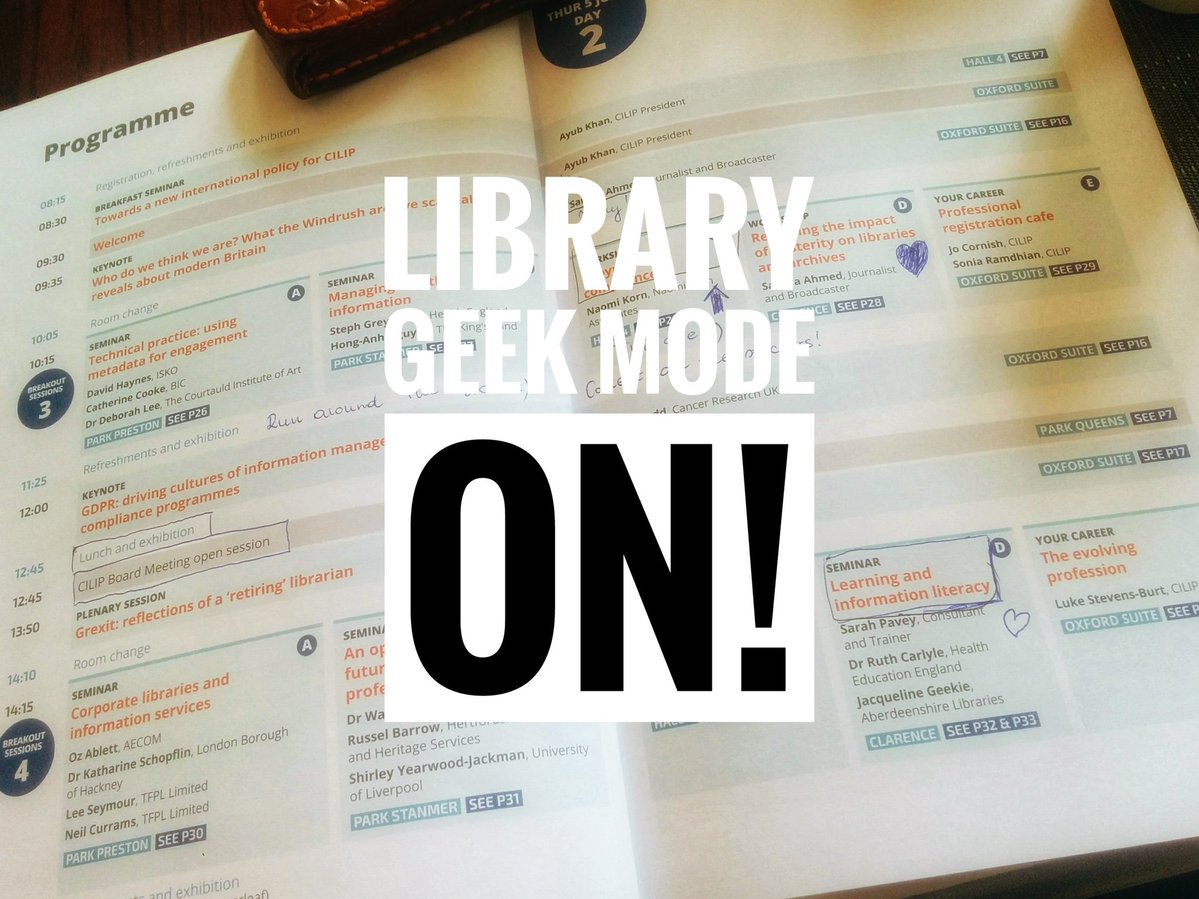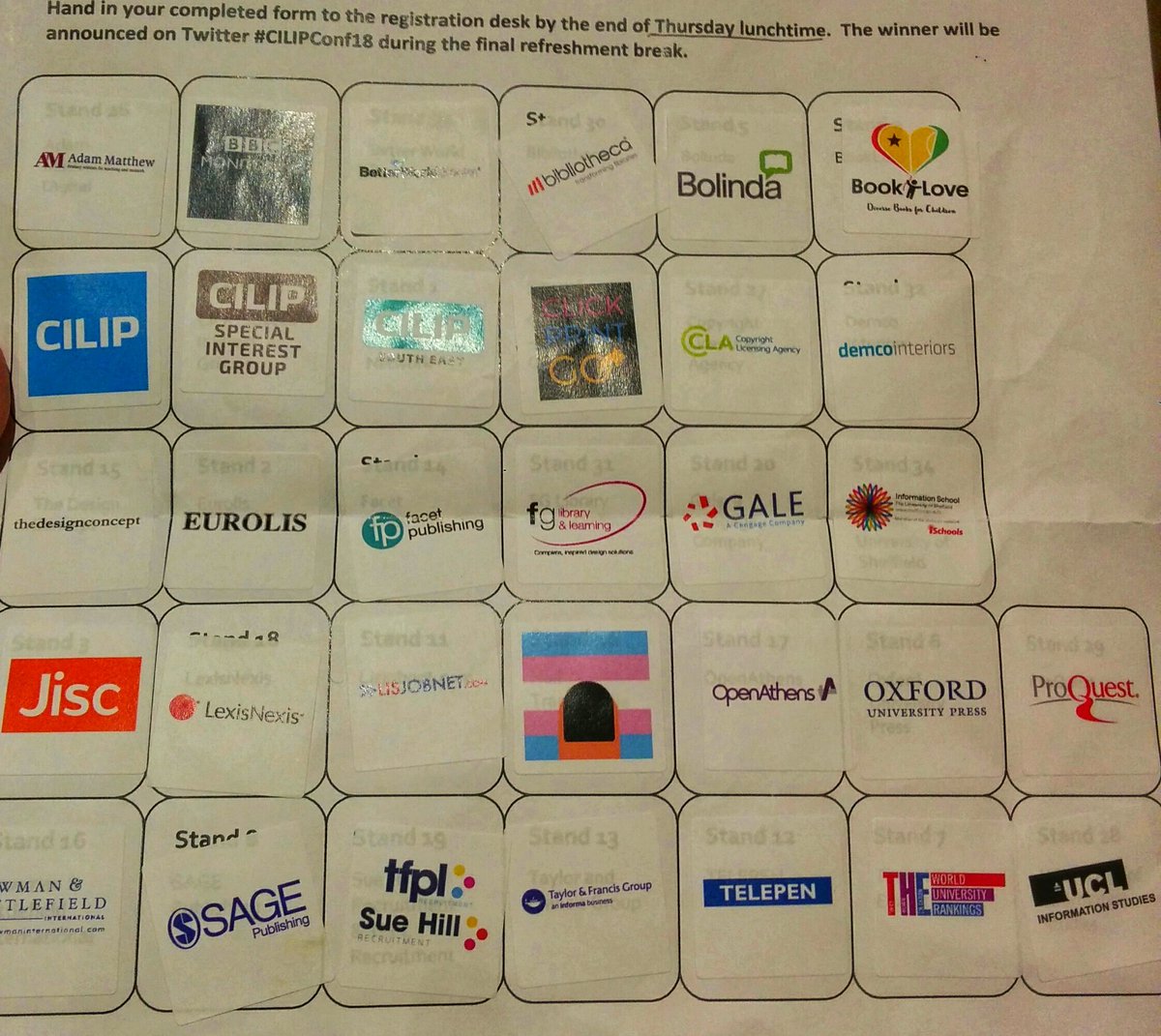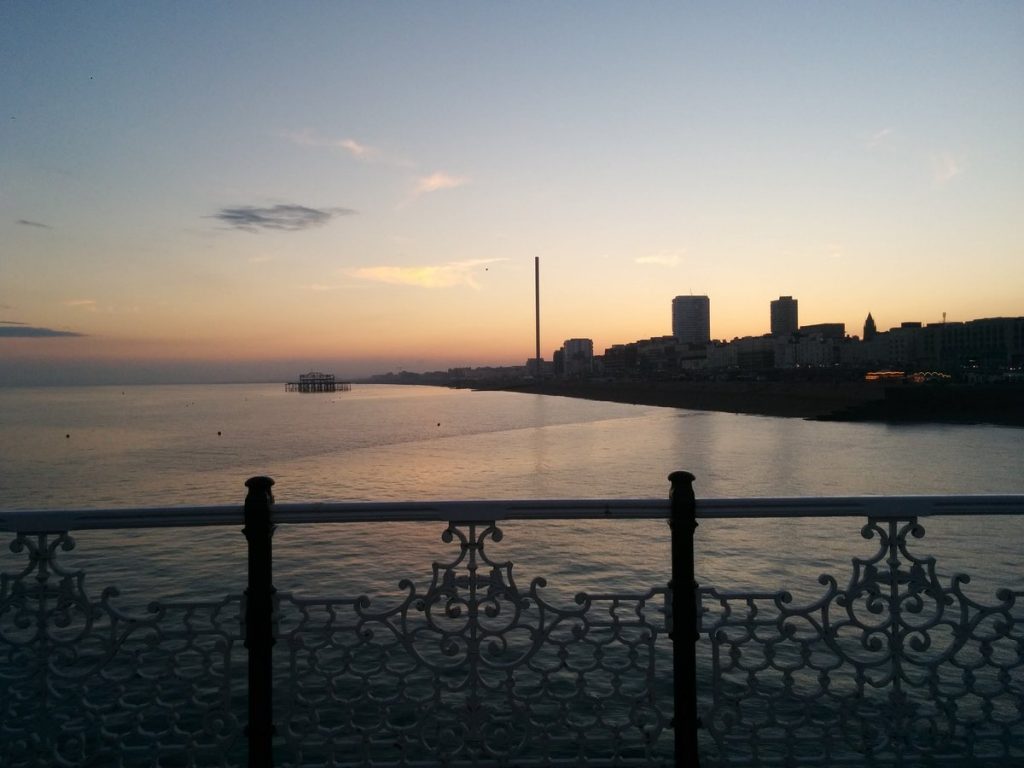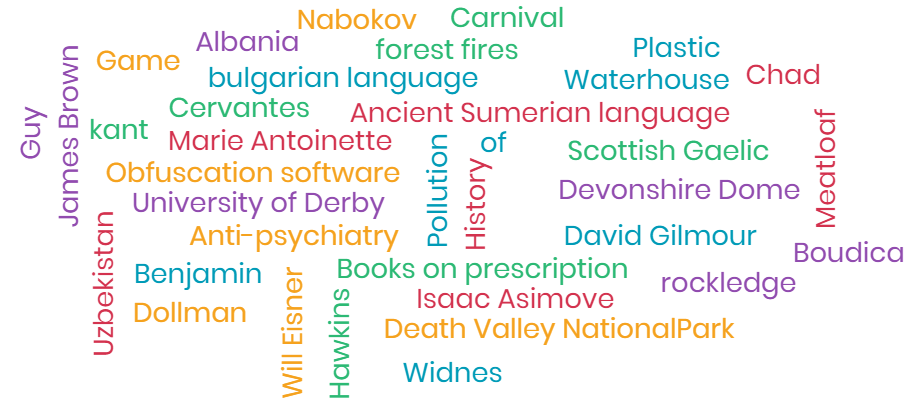In this guest blog post, Emilia Brzozowska-Szczecina reports on the CILIP Conference which took place on 4th/5th July in Brighton.
Emilia attended the conference as the winner of the CILIP Information Literacy bursary.

This year I had an amazing opportunity to attend the CILIP Conference thanks to the Information Literacy Group Bursary Award. This event took place on the 4th and 5th July in Brighton, just near the lovely seafront, at the Hilton Metropole Hotel. Almost 500 professionals from various sectors of the library and information industry arrived to attend talks, seminars and workshops – the programme was fully packed. I must admit that it was difficult to choose which one of the five parallel sessions to attend! But let’s start from the beginning.
The first keynote of this Conference, presented by Penny Young from the House of Commons Library. We found out that this 200-year old institution is perceived by the Members of Parliament as a trusted brand. This is an important place where they can always find the information they need and do the necessary research to scrutinise the government and make informed decisions. The Commons Library also provides information for the public, by organising events and by publishing Briefing papers on wide range of topics (such as: Agriculture, Business, Social services and many others).
The ‘From advocacy to activism’ keynote was one of the many highlights of the day. This keynote was presented by John Chrastka and Patrick Sweeney from EveryLibrary, the nationwide political committee for libraries. EveryLibrary helps library communities in ballot measuring for funding, operations and buildings, securing over $220 million in funding on Election Days. They also publish the Political Librarian Journal and lead such initiatives as savechoollibrarians.org and #VoteLibraries2018, which is an advocacy campaign during elections. I recommend viewing their presentation as it contains lots of interesting statistics. We found out that attitude towards libraries and library funding support is not determined by factors such as demographics, political views, library card statistics or library usage. The most committed supporters believe that the ‘library is a transformational force’ and they recognise the value of a passionate librarian as a true advocate of lifelong learning. I think that it shows very well how our own attitude to work and motivation are important. The speakers emphasised also that we need to ensure that every audience is included in the advocacy and that personal motivation and timing have crucial role when campaigning for libraries sector.
‘Quick win marketing’, the last session attended on Wednesday was an eye-opening workshop conducted by Terry Kendrick. It is very difficult to outline key marketing concepts in no more than 1 hour and 20 minutes. However, the few questions that Terry asked us during this event were these a-ha moments that helped me realise that by being so focused on the services we provide, we often forget its important value and how it can help our library users achieve what they want. We do mention the ‘what we do’ part, but the ‘what you get from it’ part is lost somewhere between the verses. This workshop gave me a lot to think about and changed how I want to contribute to promoting the library services in my institution.
I decided to kick start my 2nd day with Samira Ahmed’s keynote. I watch ‘Newswatch’ on BBC 1 regularly and I was very much looking forward for Samira’s talk. During her keynote ‘Who do we think we are? What the Windrush archive scandal reveals about modern Britain’, she presented amazing examples of people and institutions collecting important historical evidence. The most stunning example concerned the Museum on Ellis Island that holds over 51 million records of passengers who arrived to the United States in the XIX and XX century and created a database that allows searching through these records. I think that most of the attendees will remember the question that Samira asked during her talk: Why couldn’t these Windrush landing cards be passed over to the National Archives?
In the meantime, during the breaks between the sessions, I managed to collect all the stickers for all exhibitors at the Conference! This task may sound daunting, but in reality it was great to talk to representative of companies and organisations who support our profession in many aspects. The exhibitors put a lot of effort into making sure that their stalls attracted attention by creating funny exhibitions (e.g. Bibliotheca with their mini-model of a librarian in the safe) or offering nice freebies.

In the afternoon, I attended another long-awaited workshop ‘Learning and information literacy’. Sarah Pavey gave a great presentation on the presence of information literacy in a school curriculum. Sarah emphasized that we need to fight for this presence to bust the growing myth that school libraries are only for reading for pleasure and for English classes. In the second talk, Dr Ruth Carlyle introduced the Health Literacy Toolkit packed with resources, case studies and training materials. The last talk was presented by Jacqueline Geekie from the Information Literacy Group. Jacqueline told us about lifelong learning in public libraries in Aberdeen. A public library plays the role of a ‘people’s university’, where they can learn information literacy skills in many aspects, in formal and informal settings. This includes finding job adverts or learning how to organise a vacation, life skills where information literacy awareness is also important. I am very glad I could listen to these talks to find out what is being done towards information literacy in different sectors and now I want to learn more about Health Literacy. The toolkit provided by Ruth will be the first port of call in my journey towards discovering this area.
I think that one of the most important outcomes for me from the CILIP conference is that I finally had the rare opportunity to meet library professionals from different sectors, especially school and public librarians, as well as information professionals working in NHS institutions. From the beginning of my professional career, I have always worked in the HE sector and this conference opened some new ways for me where I can look at many topics from a new perspective, such as ethics in our profession or the importance of information literacy. I would like to recommend attending the CILIP 2019 conference in Manchester, especially to those who never had this opportunity before. The CILIP Conference is an excellent, two-day-long celebration of our profession.



